Going Down (South) is a regular column about y’all being a gender neutral pronoun, how red states are actually more of a purplish color, boiled peanuts, and the trials and tribulations of being a rural homo — with an emphasis on the tribbing.
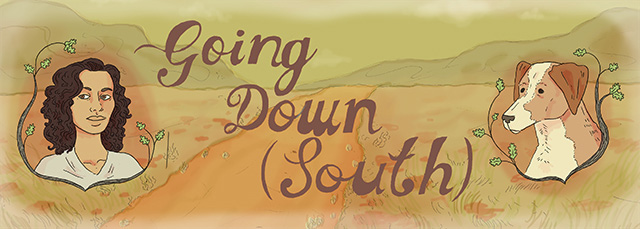
Header by Rosa Middleton
A recent article in Atlanta Magazine struggled to answer the age-old question of what it really means to be Southern:
An entire academic subculture is devoted to “Southern Identity,” but even its scholars haven’t reached consensus. World libraries contain more than 630,000 books categorized as “Southern”—forty-three times as many as those filed under “Midwestern.” Editors of the New Encyclopedia of Southern Culture just released their twentieth volume. Here’s a sampling of topics: Black Elite; Demagogues; Hillbillies, Crackers, Rednecks, and White Trash; Jazz; Lynching; NASCAR; Radicalism; Rap Music; Secession; and Stereotypes (subcategorized by gender). If that list doesn’t speak to the South’s complexity, consider: Just one entry separates “King, Martin Luther Jr.” from “Ku Klux Klan and Other White Racist Organizations.”
‘Southern’ is an ambiguous identity. It doesn’t really have a singular identifier, just a kitschy handful of vague qualities or interests one might possess. At times, regional boundaries aren’t even enough to make someone a Southerner: The US Census Bureau happily considers Texas and Oklahoma Southern states; the television show Supernatural swore that Missouri was one. When people start fussing about whether or not Florida is “Yankee state” at family dinners, I’m quietly relieved that Georgia is unanimously considered to be Southern. I don’t think I could handle being told that I am not something that I’m so certain that I am.
Because of this, I’ve had a lot of people ask me, “Am I Southern enough?” Maybe they grew up in a more cultured city south of the Mason-Dixon, or maybe they’re a transplant of two or so years, or maybe they don’t fit the rough and gritty/prim and proper stereotypes. My answer is always along the lines of , “Yes, honey. Yes. If that’s an identity you want to take, with the understanding of its historical burden and endless list of cliches, have at it.”
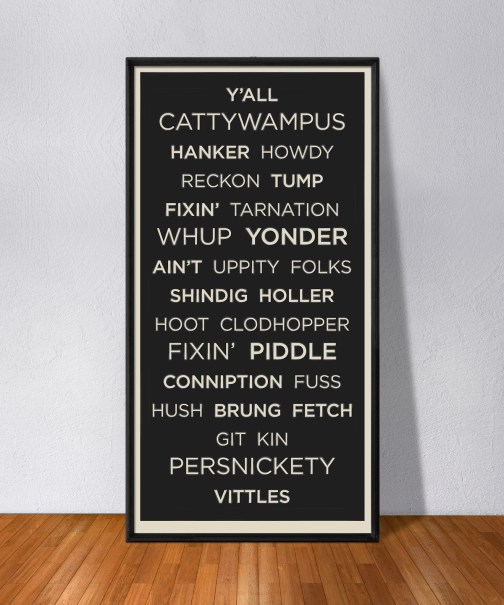
Being queer is a lot like being Southern. Both identities refuse to be contained by border or stereotype. There’s no one way to be queer, just like there’s no one way to be Southern. You can stray away from either place but still identify with it; call it home. They are nomadic identities, and both queer and Southern alike have a remarkable sixth-sense when it comes to picking one another out of crowds in the biggest of cities.
What does it mean to be both queer and Southern? What happens when two vague identities fuse together? Does your identity become as slippery as the backside of a gecko, or do you have a heightened understanding of who you are?
I asked a handful of LGBT-identified, Southern-identified this question and this is what they told me. Feel free to chime in with your own ideas in the comments; let’s have this conversation together, yeah?
Clare, Tennessee
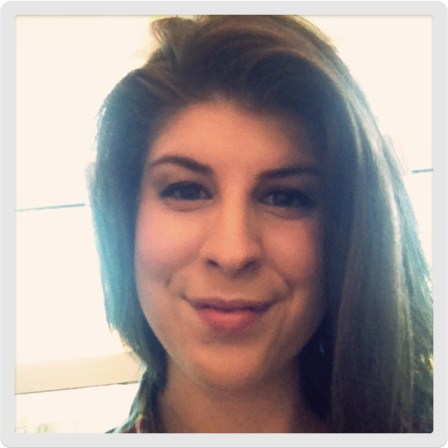
It means reading Southern Weddings and swooning, then hoping that the editors would give me the time of day if I wrote in asking to see a non-hetero couple, and learning to fall in love with where I came from (bigots and all) by watching someone else love it first, and finally understanding why we’re always talking about blessing hearts and counting blessings, and realizing that black-or-white alternatives are often self-imposed.
Jessica, Louisiana

Being queer and Southern means leaving home and going to live two thousand miles away, in Ireland. It means the constant heartache of missing home and the relief of not having to dodge questions from my family. It means dodging questions from new friends (Did your family vote for Romney?) but, most of all, it means homesickness for good food, Mardi Gras and a family that loves me, but isn’t quite there yet.
Jessi, Alabama
To me gay and southern means family. At my house, you will definitely not leave with an empty stomach or heavy heart. My mom will greet you with a hug and feed you dinner if you stay long enough. If you can share a laugh and a smile then the door is open no matter how you identify in life. Gay isn’t an issue. It’s all about love for family and friends.
Zach, native Texan, current Chicagoan
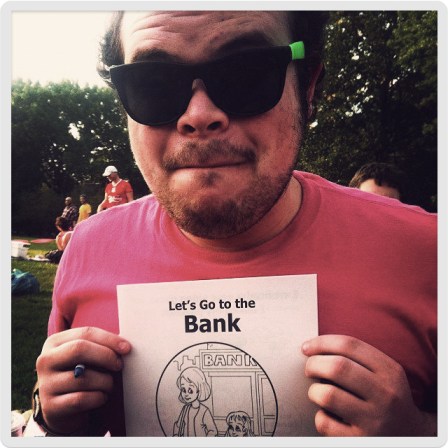
When I lived in Texas, my identifying factor was that I was queer; here, in Chicago, it’s that I’m Texan. No matter where I’ve lived, I wear my own uniqueness like a badge of honor. But to be honest, being queer and being Southern have rarely intersected because they feel so separate and distinct. I think it’s all about the perspective you give your identities.
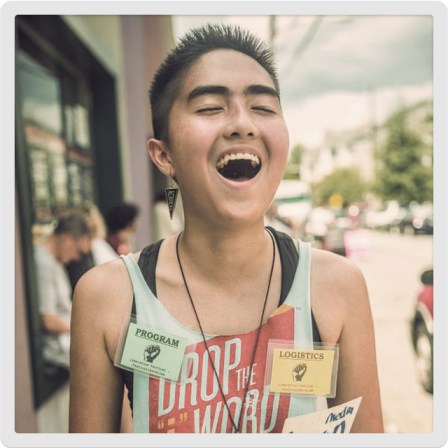
Being a southern queer person of color means I am fulfilling legacies of survival; it means I am honored and blessed every day with the resilience of my peoples’ and my region’s history. It means that I am constantly learning how to be a better person in the face of opposition – my life is dedicated to love and compassion, for myself and for others. And it means I’m damn fierce.
Jenna, South Carolina
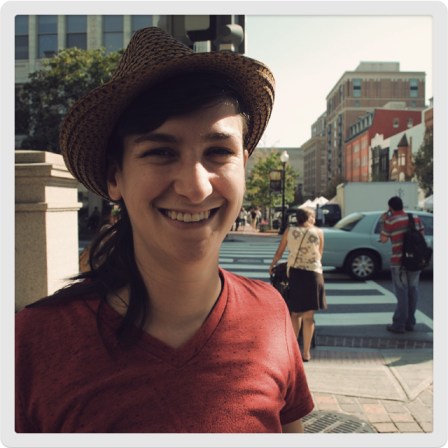
As a queer Southern person of color, its really important to me to stay here and remake the South into a place where all people can survive and thrive. Living in a city that was built off of slavery means that when I do organizing work as a queer person, I must ask myself whose liberation I am fighting for–is it just mine? Or is it for all oppressed people in the South?
Alysia, Dallas
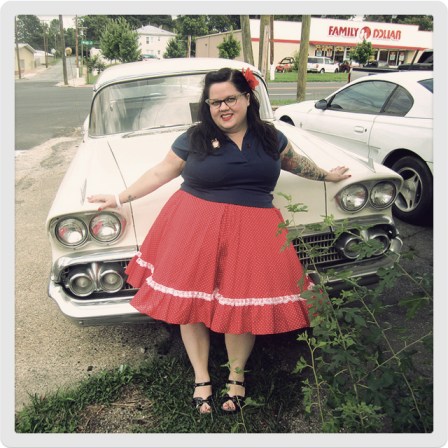
Growing up queer in Dallas, Texas meant to be a secret. It also meant to be in love over and over privately and painfully. It created a welling want inside of me. This welling at some point became a Tsunami that lifted me up and carried me out of the south to live in the Pacific Northwest. As much as I freely loved and learned there, things didn’t come full center for me as a southern queer, until I moved to North Carolina over a year ago. Living in this south I discovered what a hot house Femme flower I really am. I have finally unfurled my petals and allowed them to lilt around my queerness with heady ambrosia. Being a southern working class writer and a queer femme in this body and this life is to be a piece of the sun on earth. It is to be a gleaming glinting chunk of fancy. It is a honey coated southern drawl, a loud unabashed laugh, and the sound of my heels on hot pavement.
Shannon, Virginia
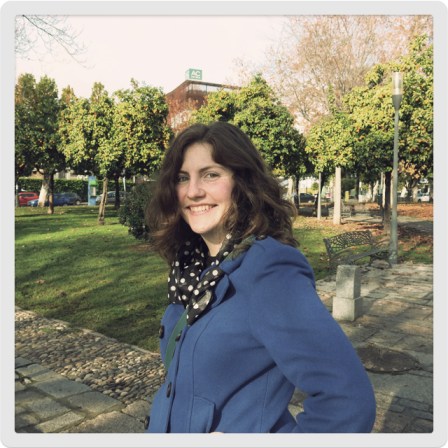
Being from Virginia, I never feel quite Southern enough. Identifying as bisexual, I feel like I’m not queer enough. It’s like wearing a succession of poorly-fitting, itchy winter coats; none of them is quite right, and I’m always self-conscious about it. But I went from lady-like femme to baby dyke lesbro overnight when I came out four years ago, and then back again, and I’m still trying to find that middle ground. Most of the time I’m flummoxed.
Alyssa, Texas
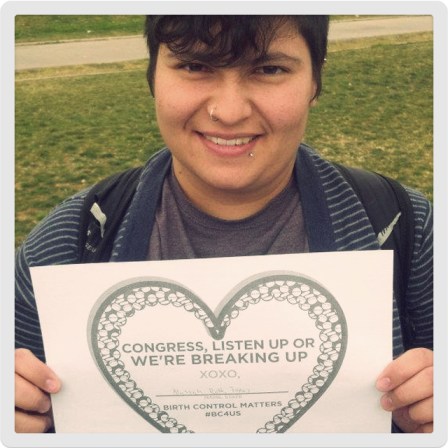
What it means to me to be queer and “southern” (on the Mexico border) is to be weary. Some of our culture is very cold and traditional. On the other hand, it also means to have pride because our culture is dripping with diversity, strength, and revolution.
Jackie, Arkansas
For me, being queer in the South means totally and completely loving a deep-fried, gravy-smothered, God-fearing, foul-mouthed, sweat-stained, beautiful place that doesn’t always love me back.






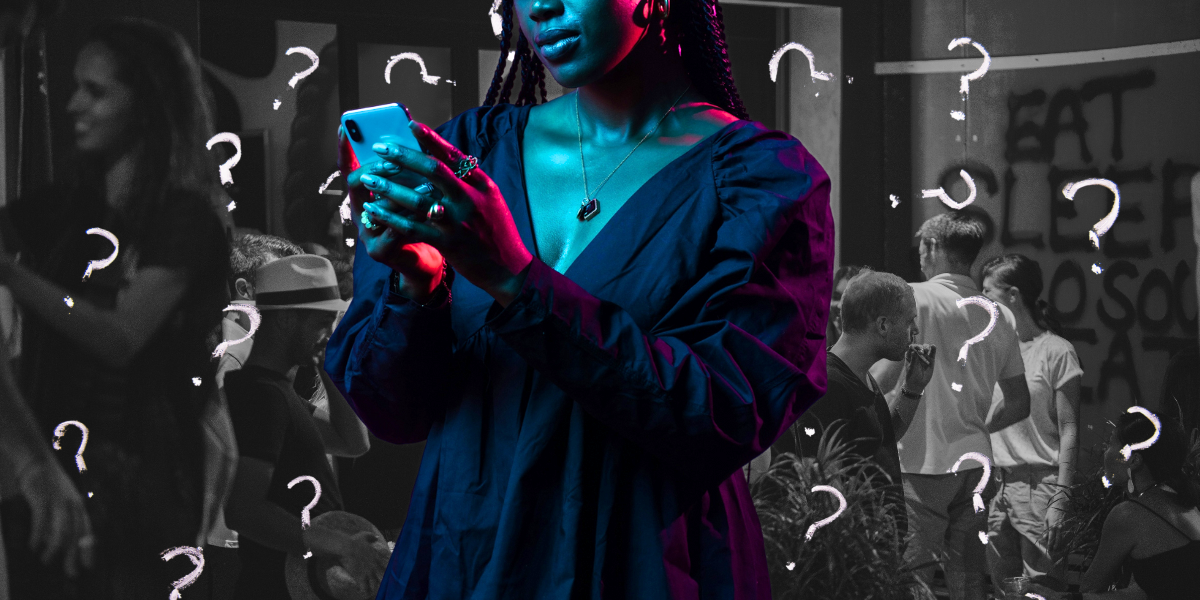

Comments
This has quickly become my favorite column.
I don’t know about the rest of y’all, but now I want to whip up some comfort food and pour us some Jack Daniels.
I feel that!!
stuck in this new england winter, there are few things I want more than the comforts of home. including but not limited to a bottle of jack and a plate of smoked and/or fried everything.
I’ll see your new england winter and raise you a Moroccan winter where getting decent alcohol is hard to do for anybody and impossible to me on my Peace Corps living allowance. At least people here are nice like the South and the pace of things makes even the laziest Southern town look like New York City. I feel you on that fried food though.
I have been known to fry ALL the things.
Rum or go home.
“When I lived in Texas, my identifying factor was that I was queer; here, in Chicago, it’s that I’m Texan.”
this is the story of my entire texan lesbian ass life.
also, this is hands-down my favorite column.
So, um, reading this column always makes me wish you were my Southern Studies professor? I’d much rather think about “Southern Queerness” than read Huck Finn yet again.
oh lord, i’d stuff you so full of alice walker and dorothy allison.
Nobody from Florida :(
seconded
My face and words are on Autostraddle! I’m over here swooning again! AH!
I just love this column. What you write plus some of the work some of my friends back home in the south(Jenna!) are doing makes me think I do want to move back to the south and work on helping the area of the country that I do love grow. After denying my Southern nature my whole life, never taking on that identifier because I wasn’t born there and my parents weren’t from there, I have come to realize that I am a Southerner. My dad’s family is from Georgia after being freed from slavery in South Carolina, we own land in Georgia, and I think I have finally accepted my Southern roots and come to really appreciate the things that make the South great. Thank you for helping me do that. There really is no place like home.
this comment wins forever
I don’t know what it is to be queer and southern without adding my blackness. For me it’s really been about understanding the difference that’s constant. Being in college with them yankees, my all around culture is so inherently different. And even though historically it hasn’t been that way, my experience in the south has been accepting and loving people despite their difference. Always having a place to call home. And a shot of Jack in the times it doesn’t go that way.
this is my favorite edition of gs(s) so far. y’all are beautiful.
this was so cute.
This column always makes me WANT to be Southern. Especially when it goes up on really, really cold Boston days.
YES. i get total southerner envy when reading this column.
My queer Southern heart is swelling with pride and love for everybody here. Bless y’all.
I think the phrase “identity as slippery as the backside of a gecko” is a great way to describe how I feel about being southern and queer. I also now really want to pet a gecko to see exactly what that feels like.
Queer native Texans now in Chicago represent!
The Southerners need to meet up!
^this
being a Louisiana ex-pat and queer means having a Jack Daniel’s placard and a fleur-de-lis ornament hanging on my wall next to a poster from an Andrea Gibson show. It means vegan gumbo and Kentucky Derby Pie. it means using “y’all” and “wicked” in the same sentence; it means code-switching names and pronouns when speaking to my grandmother. It means white Yankees asking me why I don’t have an accent when every Southern-sounding character on TV is a caricature. (most non-white folks up here don’t ask. I suppose they know–better than I do–that language is power.) it means knowing how to pray without belonging to any congregation and knowing how to cuss as colorful as a rainbow sticker.
it means knowing my history and knowing it bloody. it’s being born in a city known for its bombs aimed at churches, water cannons aimed at marchers. trace back my family tree, sprawling as a live oak, and you’ll find soldiers on both sides of the Civil War. you’ll find slaveowners and folks who left Ireland so they wouldn’t starve or die in the poorhouse. but unlike in other parts of America, that history doesn’t fade with time or distance. for so long Southerners have wrapped themselves up in their history like a shroud, or a flag, that it’s sunk in deep.
it means seeing Confederate flags on the belt buckles of the boys who called me a bitch dyke in middle school for standing up for women’s rights.
it’s turning out to be a dyke anyway, and learning how to be proud of it.
it’s also cicadas whirring louder than pickup truck engines and hot sticky nights swatting mosquitoes while sipping beer on the back porch, catching fireflies and lighting fireworks, going barefoot despite the risk of fire ants. it’s kissing a girl for the first time and it felt like those fireflies were lighting up behind my eyes and my toes were digging into the clay.
it’s getting called “sir” for the first time by a mall clerk, and feeling that same feeling; it’s constantly resisting the urge to use “ma’am” and “sir” when addressing anyone older than me.
it means geaux Saints and roll Tide, and even the gay bars show SEC football when it’s on. it’s the first cocktail I learned how to make, a mint julep, and I served it to my girlfriend with mint I grew on the porch. it is Mardi Gras, Southern Decadence, and Juneteenth, the Fourth of July and the day black kids walked into a school in Little Rock. it’s knowing your next heartache could be a hurricane away and knowing your neighbor probably voted against you in the last election.
being Southern and queer is all of these things and more. where I came from is just as important as who I am now, a young gentlequeer trying to be true to myself and to my roots. it’s learning to love myself in all my queerness, just like I love this “foul-mouthed, sweat-stained, beautiful place that doesn’t always love me back.”
where can i (we?) read more of your writing? this whole comment just gave me so many chills.
aww, shucks… I don’t really update it anymore but I had a few posts here: sanscarte.tumblr.com
one of my New Year’s resolutions is to write more and maybe start a new blog for poetry and such. maybe this’ll help motivate me!
ah, shit, I’m not logged in, but this post is so beautiful and perfect, it made me ache for home, for all my homes. I’m from boston, living in New Orleans. Its wicked awesome y’all.
*this comment ont he post
You gotta share your vegan gumbo recipe. I make vegan red beans but have yet to convert any of the rest of my paw paw’s recipes.
for vegan gumbo I usually do one of two things:
-just double up on the filé and (frozen) okra to thicken it instead of relying on roux. to provide some of the smoky rich-ness of the roux, I caramelize onions in olive oil with some black pepper and cayenne. this way I can also make it gluten-free for celiac friends!
-make a roux out of faux-butter spread and flour. olive oil just doesn’t work right, I’ve found.
for either version, I then throw in the holy trinity, some zucchini or squash, and Rotel sauce/canned tomatoes with chilies, along with either red beans or veggie Italian sausage for the “meat”. unfortunately I haven’t found a good way to imitate seafood gumbo, but fortunately I was never a huge fan of shrimp anyway.
Alysia, your words, wow! Love them and the way you use them!
I’ve been worried about moving back home to South Carolina (from relatively open-minded San Diego), being newly out of the closet. Reading this article and the words of happily out homos who DGAF has made me wonder why I was so worried in the first place. It’s just one more way to be fabulous in the south.
listening to le tigre while you’re muddin.
being ridiculously happy about seeing that one hrc sticker on a car in the wal mart parking lot.
knowing all the words to lots of garth brooks songs that you hate.
I don’t think I’ve read one article in this column that didnt make me cry at least a little. It’s just always so spot-on.
I’ve only been to the South once but have always wanted to get to know it better. Thanks for sharing with us. I agree, this is my favorite column right now.
The only thing Southern about me is the food that I eat. It’s a place I grew up, not home, nothing I identify with. I wish I could twist some beautiful words around being queer in the South but the only thing I feel is the undeniable longing to get out because of it.
This whole article and comments make me miss my home so much. I didn’t really realize how much I’d miss it but now that it’s been about 3 years away from Arkansas I really do.
For me being queer in the south is something still a little foreign to me. I realized who I am after I had already moved away but now it’s interesting every time I visit. I remember when a friend here in the north asked me about gay bars and I didn’t know of any because our identity is still underground and I had never heard of any. Though I think LGBTQ life is surfacing a lot more now. Or maybe because I went searching for it more. ;)
Thank you for all the beautiful words you’ve written.
I love the word clodhopper… I wonder what it means in different areas in the south.. in Texas it means a massive huge grasshopper that seems to be prevalent in the hot ass summers here.. they gather on the roads.. me and my brother used to collect them in our bug cages as a youngster!
Being queer and southern is a definite trying to live in between two worlds.. there are a lot of boundaries that you have to create.. you are seemingly always aware of your presence in a room of wranglers and cowboy hats and gun-loving republicans.. :) I have learned to fit in between the lines somehow. . I still fish..process deer with my family.. feed the chickens…
“got my hand on the plow and my feet in the ghetto!”
According to my Mama, clodhoppers are a pair of ill-fitting/bulky shoes that you’d best not wear indoors. :)
I come from a really diverse small town. It’s kinda odd when I think about it. We have Gays and Lesbians that hold hands and kiss in public. We have pretty much every nationality. I really don’t feel like the small southern town stereotype fits my hometown. We welcome everyone. Now I’d stay if it wasn’t so damn boring here. We have a bowling alley and that’s it besides the countless restaurants. But people will be look at you funny if you dress up at all. I like dresses and everyone always thought I was either going to a wedding, church, or a funeral. :P
“Being from Virginia, I never feel quite Southern enough. Identifying as bisexual, I feel like I’m not queer enough. It’s like wearing a succession of poorly-fitting, itchy winter coats…”
^this. And for me, it also means other people repeatedly smothering you in those various coats depending on where you happen to be. Like in Boston: “no, really, Northern Virginia is pretty culturally different from… mmmnrnfnf… okay, FINE! I’m Southern, if it means that much to you.”
I am from Kentucky so I can totally relate… I tend to take it with a grain of salt and a good sense of humor. I have a youtube channel and we made a pretty hilarious parody of the shit girls say and turned into shit lesbians say! You guys should check it out and let me know what ya think if ya need a good laugh! Here’s the link if ya want to! http://www.youtube.com/user/JLMac0607?feature=watch
I love the youtube vids.. the birddog dating video had me laughing my ass off
thank you for this collumn
thank you for this column,
from Durham, NC
Being queer and from the south to me is a mix of pride and pain. I swell with pride when I see a HRC sticker or rainbow flag. Then I’ll see confederate flags. The weird thing was really, when we lived in South Carolina, what we were taught about slavery was very different from what we learned when we moved to North Carolina. It means being in a family of kind and thoughtful people who also hate gays. It means going to church and listening to them talk about and celebrate god’s love and mercy. Then going home and sitting around the dining room table and hearing the same people spew out hateful things about black people, gays, Catholics, Jews, and basically anybody not white and protestant. It’s about manners and conversations with people in the grocery store line. It’s about sweet tea, biscuits, grits, potato salad, and banana pudding. It’s about family reunions at the church annex building. It’s about a struggle between progression and fear. It’s about watching meteor showers from the Blue Ridge Parkway with your girlfriend. Remembering catching lightening bugs as a kid. Wanting desperately to be loved unconditionally by your family but the heartache of knowing it won’t happen. The pain of knowing my mom died fully being afraid for me because she believed I would spend an eternity in hell. I guess being queer and from the south is complicated.